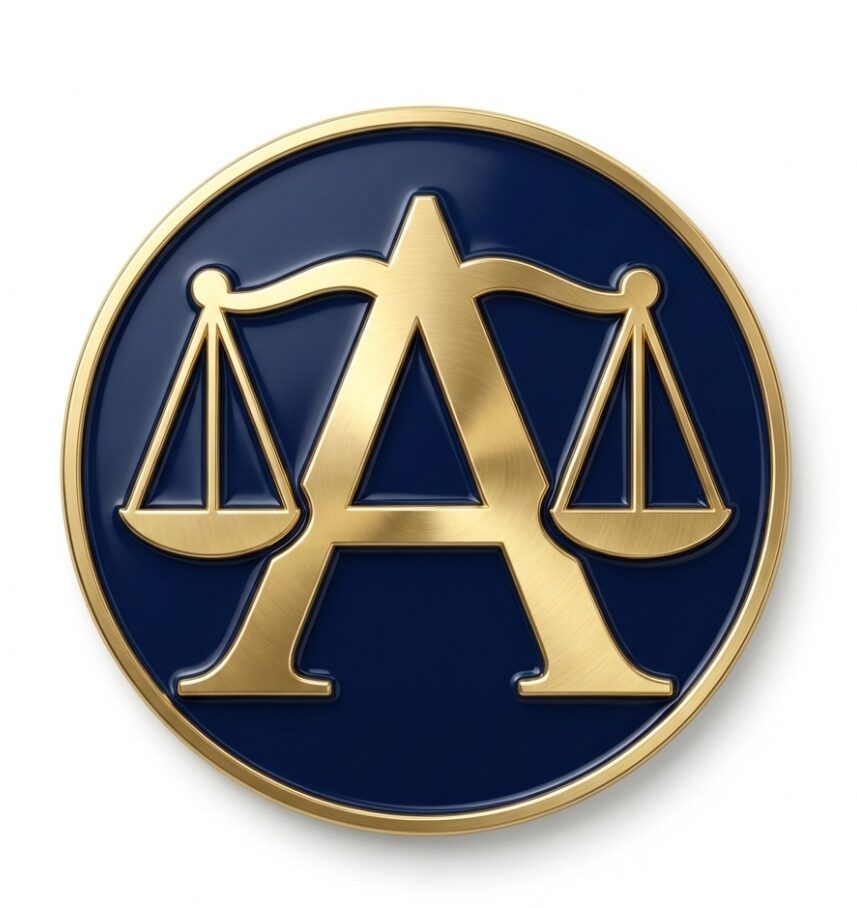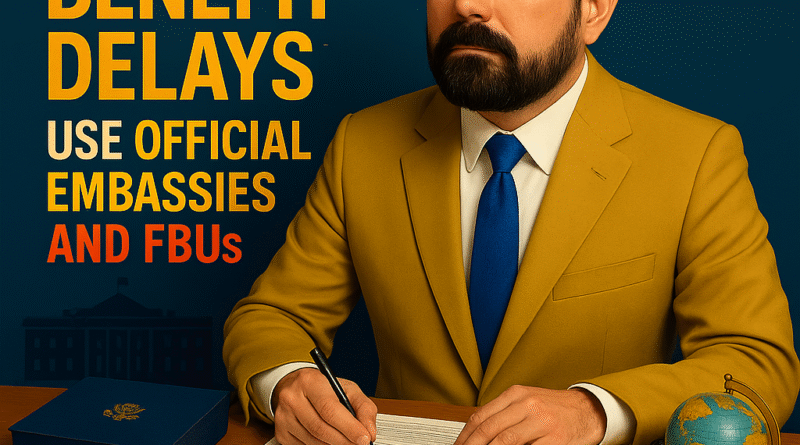Stop Benefit Delays: Use Official Embassies and FBUs
Using U.S. embassies and Federal Benefits Units (FBUs) is the safest way for beneficiaries abroad to get accurate, priority support for Social Security issues without costly mistakes, suspensions, or endless calls to the U.S.
If you’re living outside the United States and worrying about your Social Security benefits, you’re not alone. Many retirees, survivors, disabled workers and dependents abroad feel lost between time zones, conflicting advice and slow responses. The good news: U.S. embassies, consulates and their regional Federal Benefits Units (FBUs) exist exactly to bridge this gap — and when you use them strategically, most “impossible” problems become solvable.
How U.S. Embassies and FBUs Fit into the Social Security System Abroad
There are no regular SSA field offices outside the U.S.. Instead, international cases are managed by SSA’s Office of Earnings & International Operations (OEIO) in Baltimore, with support from:
- U.S. embassies and consulates – front door for federal services abroad.
- Federal Benefits Units (FBUs) – specialized teams, usually located in selected embassies/consulates, trained to handle SSA and other federal benefits for multiple countries in their region.
Key functions of FBUs (typical):
- Taking and forwarding claims for retirement, survivors, disability benefits.
- Assisting with address changes, direct deposit, bank updates and non-receipt of payments.
- Guidance on nonresident alien tax withholding and SSA-1099/SSA-1042-S statements.
- Explaining rules in totalization agreement countries.
- Collecting documents for proof-of-life, questionnaires and overpayment reviews.
(Data and roles based on official SSA and U.S. Department of State guidance for services abroad, updated through 2025.)
Why embassies & FBUs matter for your SSA case
- Verified channel: They send your forms and evidence directly to SSA/OEIO, reducing lost-mail risk.
- Local instructions: They know which FBU serves your country and which documents work under local law.
- Language & context: They can explain U.S. rules in practical terms for people living abroad.
- Free services: Genuine FBU/embassy SSA services are free of charge.
Finding the Right Embassy or Federal Benefits Unit for Your Country
Step-by-step: identify who actually handles your benefits
One of the most common mistakes is sending forms to the wrong office. The correct workflow is:
- Go to the official SSA “Service Around the World” / foreign services page or your local U.S. embassy website.
- Check which regional FBU serves your country (for example, FBUs in cities like Dublin, Frankfurt, Manila, San José, Buenos Aires, etc., cover multiple countries).
- Use only the contact information listed on official .gov sites (email, webform, phone, appointment system).
Quick reference chart (illustrative only):
| Region | Example FBU | Typical Coverage |
|---|---|---|
| Latin America | Regional FBU at designated U.S. embassies | Multiple countries in the region |
| Europe | Selected embassies/consulates | EU & neighboring countries |
| Asia & Pacific | Regional FBUs (e.g. Manila, others) | Broad regional coverage |
Always confirm live coverage and contact details on official SSA and U.S. embassy websites, as assignments change.
What services you can request via embassies & FBUs
- Filing an initial benefit claim or survivor benefit based on a worker’s record.
- Reporting marriage, divorce, death, address or bank change.
- Help with non-receipt of payments or suspected fraud.
- Guidance on Medicare enrollment implications while abroad (where applicable).
- Support with international questionnaires (e.g., proof-of-life, foreign enforcement forms).
How to Use FBUs Efficiently: Practical, Legal and Step-by-Step Guidance
Before you contact the FBU: prepare like a pro
Treat your embassy/FBU interaction like a focused legal appointment. Preparation speeds decisions and helps avoid suspensions or overpayments.
- Gather identification: Passport, Social Security Number, local ID, contact details.
- Have SSA documents ready: Award letters, notices, questionnaires, prior correspondence.
- Bank details: Correct international bank info for direct deposit, if available.
- Explain your situation in writing: Short timeline of facts, especially if you changed countries, banks or marital status.
During the contact: use official channels only
- Book an appointment or submit documents via the official embassy/FBU webpage or email.
- Confirm where to send original or certified copies (some FBUs require in-person delivery; others accept mail).
- Ask for written confirmation that your form or claim was forwarded to SSA.
Mini-stat snapshot (illustrative): Beneficiaries who use FBUs or official embassy contacts typically resolve payment or documentation issues faster than those relying only on random phone calls or unofficial intermediaries, because their requests enter SSA’s international workflow correctly the first time.
Examples: When Using Embassies & FBUs Saves Your Benefits
Example 1 – Address & bank change done right
Maria, living in Spain, changes banks. Instead of mailing forms blindly to the U.S., she follows her embassy website, contacts the regional FBU, signs the proper direct deposit form, and gets written confirmation. Result: no missed payments, no fraud alerts, no suspension.
Example 2 – Survivor benefits from abroad
After her spouse dies in another country, Ana contacts the FBU listed for her region. The embassy staff explains which documents must be translated or legalized, scans and forwards them securely, and guides her through timelines. Result: claim accepted with fewer delays.
Example 3 – Fixing a suspected suspension risk
John receives a foreign-enforcement questionnaire and fears losing benefits. Instead of ignoring it, he books an appointment at the embassy, completes the form with help from FBU staff, and they send it directly to SSA. Result: payments continue without interruption.
Common Mistakes that Put Your Benefits at Risk
- Sending sensitive SSA documents through unofficial “helpers” or non-.gov emails.
- Ignoring embassy/FBU instructions and mailing forms to random SSA addresses.
- Failing to report address, marital status or work changes while abroad.
- Using incorrect bank details for international direct deposit and never confirming.
- Missing FBU/SSA deadlines on questionnaires or proof-of-life requests.
- Assuming “rules are the same as in the U.S.” and not checking special rules for payments outside the country.
Short Conclusion: Turn Confusion into a Controlled Process
Using U.S. embassies and Federal Benefits Units is not just an option; it is the most reliable path to protect your Social Security benefits abroad. When you rely on official FBU contacts, prepare your documents carefully and follow clear instructions, you reduce delays, prevent suspensions and avoid trusting intermediaries who can put your money at risk. Transform your situation from anxious and uncertain to documented, tracked and secured through official channels.
This material is for general informational purposes only and does not replace personalized guidance from qualified professionals or official instructions from the Social Security Administration and U.S. embassies/consulates.
- Always start on official .gov pages: find which FBU covers your country and follow those instructions.
- Use FBUs for: claims, benefit changes, address/bank updates, proof-of-life forms, non-receipt, and identity verification.
- Prepare before contact: passport, SSN, award letters, questionnaires, bank details, proof of residence/marital status.
- Use only official embassy/FBU email, webforms, or appointment systems; never third-party “fixers”.
- Ask for written confirmation when the FBU forwards your claim or documents to SSA/OEIO.
- Respond quickly to any FBU/SSA requests for extra documents to avoid suspensions or overpayments.
- U.S. government assistance from FBUs/embassies for SSA is free; be alert to anyone charging “expedite fees”.
1. Can a U.S. embassy or FBU make the final decision on my Social Security claim?
No. FBUs and embassy staff take, verify and transmit your claim and evidence, but the final decision is made by the Social Security Administration (SSA), usually through its international operations units in the U.S.
2. What is the advantage of using an FBU instead of mailing forms directly to the U.S.?
FBUs use official secure channels, know the correct addresses and requirements, and reduce the risk of lost mail, incomplete files and unnecessary delays for beneficiaries living abroad.
3. Does every U.S. embassy provide full Social Security services?
No. Only designated posts with an FBU or trained Social Security staff provide the full range of services. Some consulates simply direct you to the responsible regional FBU.
4. Can FBUs help with direct deposit or bank account changes from abroad?
Yes. They can guide you on completing approved direct deposit forms, using international bank details, and ensuring your payment routing is compatible with SSA rules for your country.
5. Should I contact an FBU if I stop receiving my monthly payment?
Yes. An FBU (or the embassy page for your country) is usually the fastest official channel abroad to check non-receipt, confirm your status and verify if there is a hold, return, or documentation issue.
6. Can FBUs advise on tax withholding (SSA-1099 vs SSA-1042-S) for nonresident aliens?
They can explain which form typically applies, basic withholding rules for nonresident aliens, and how to update your status or treaty claim, but they do not replace a tax advisor or the IRS.
7. Is it safe to use private agencies that offer “fast-track” embassy or SSA services?
Be very careful. Legitimate SSA and FBU services are free. Charging large “processing” fees, using non-official emails, or promising guaranteed approvals are red flags for scams or abuse of your personal data.
The role of U.S. embassies and FBUs in Social Security services abroad is grounded in the Social Security Act and implemented through the Social Security Administration’s Office of Earnings & International Operations (OEIO) in coordination with the U.S. Department of State.
-
OEIO / Social Security services outside the U.S.:
Official SSA guidance confirms there are no regular SSA field offices abroad (with limited exceptions), and that services are provided through designated embassies, consulates, and FBUs authorized to take claims and assist beneficiaries overseas. -
Service Around the World & FBU listings:
SSA’s international services pages and FBU directories describe which embassy or FBU serves each country, contact methods, and the scope of services (claims intake, post-entitlement actions, documentation support). -
Your Payments While You Are Outside the United States:
Official SSA publications explain when benefits can be paid abroad, the obligation to report changes (address, marital status, work, residency), and the instruction to contact the responsible FBU or embassy for assistance and clarifications. -
International agreements & coordination:
Totalization agreements and SSA international rules rely on OEIO and FBUs to collect evidence, confirm coverage, and transmit information securely between countries’ institutions.
In practice, embassies and FBUs function as secure intake and liaison points: they verify identity and documents, guide forms, and relay information directly into SSA’s systems, reducing fraud risk and procedural errors for beneficiaries living abroad.
If you live outside the United States and depend on Social Security benefits, treating the U.S. embassy and its responsible Federal Benefits Unit as your primary interface with SSA is a strategic decision. Using official channels:
- Protects you from misinformation, scams and document loss.
- Speeds up claims, corrections, and proof-of-life or address updates.
- Creates a clear, trackable record of what was submitted, when, and to whom.
Before sending any sensitive form or paying anyone, confirm that the contact is listed on an official .gov website and that you understand what is being filed in your name. A few minutes of verification with an FBU can prevent suspended payments, overpayments, tax mistakes, or exposure of your personal data.
The information in this guide is provided for educational purposes only and does not replace individualized advice from the Social Security Administration, U.S. embassies/consulates, qualified legal professionals, or certified tax advisors. Always confirm current rules and procedures directly through official government channels before making decisions about your benefits.

